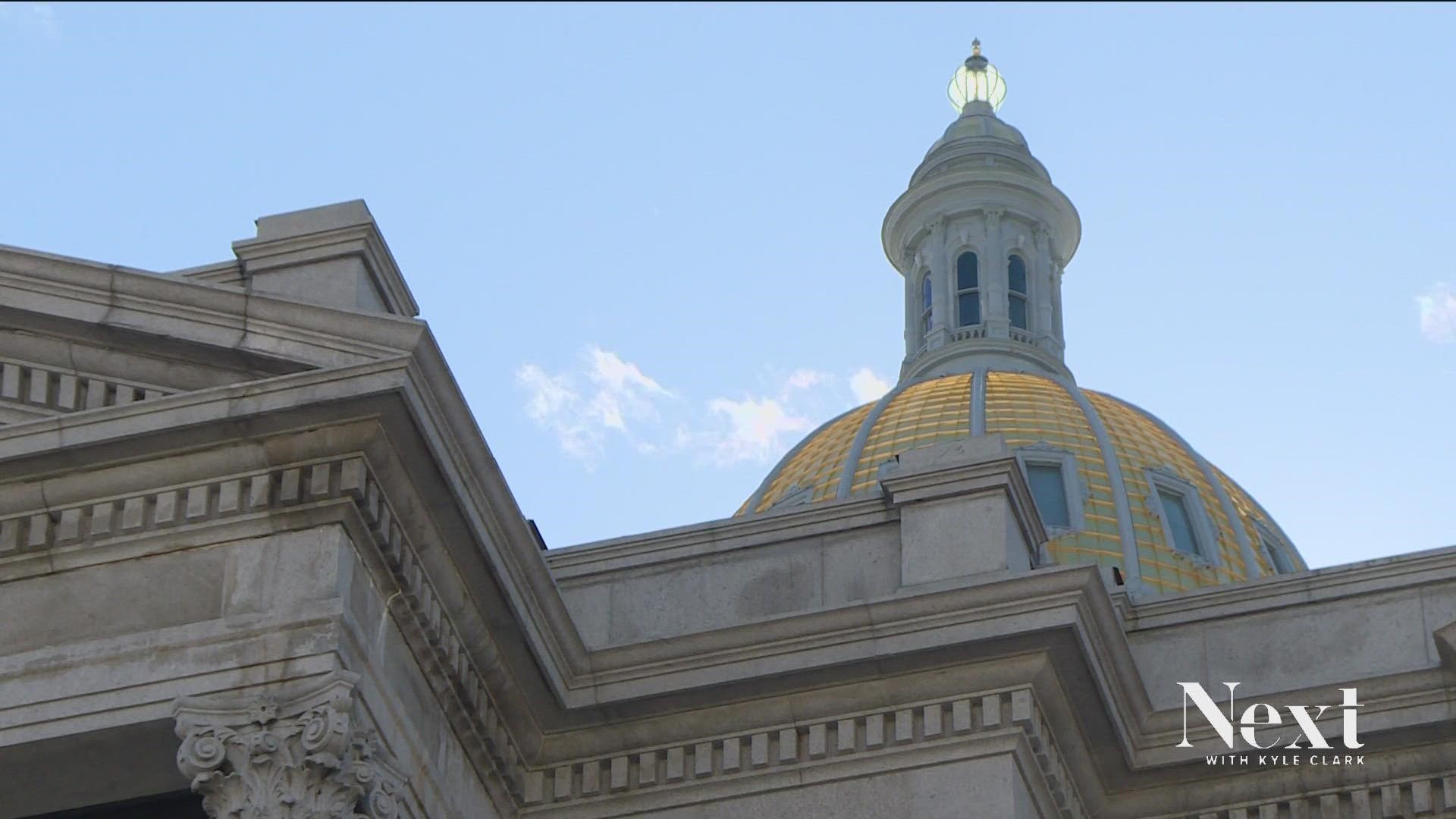DENVER — Before winning the most power they've ever had at the State Capitol, Democrats delayed a gas fee they meant to start last year.
That gas fee is supposed to start in April: two cents per gallon.
And then, it is supposed to go up again in July to three cents per gallon.
By July 2028, it will be eight cents per gallon.
Will Democrats delay that now that they have won their elections?
"I anticipate that conversation is coming. Do I think we need to implement those fees? Yes." said new State House Speaker State Rep. Julie McCluskie, D-Dillon. "I truly believe that Coloradans are also committed to seeing roads and bridges in the type of shape they need to be for us to move through this state."
McCluskie defended the gas fee because it will fund transportation needs. It was part of a 2021 comprehensive transportation bill that also added a 27-cent delivery fee and 30-cent rideshare fee (reduced to 15 cents in an electric rideshare).
"We need to get on track with our investments in transportation. I think we will continue to look for affordability measures, cost saving measures for people in this state," McCluskie said.
The delivery and rideshare fees were never delayed. Since they are new fees, the results of what they are supposed to fund have not been noticed yet.
"You start collecting revenue and then the services come a bit later. That's how a fee works," said State Senate Majority Leader Sen. Dominick Moreno, D-Commerce City. "These fees are for very specific, dedicated purposes. These are not sources of revenue that are just going to government's bottom line."
The money will fund programs to provide incentives for electric vehicles, better the state's air pollution and reduce health disparities in disproportionately impacted communities.
"As those fees are implemented, we have to remind ourselves that we are now bringing more than $5 billion to make transportation improvements, improvements that I believe Coloradans are really anxious to see," McCluskie said.
McCluskie wanted to point out that affordability goes beyond looking at fees.
"You've highlighted a couple of the areas where fees may come into play, but when we look at affordability at a broader level, a structural level, we're talking about housing and health care and childcare. Significant expenses that families are facing," she said. "We need to get back to talking about cost because that's where we all benefit, when we can drive down cost in the health care arena, we can save people money no matter where they secure their health insurance."
On Tuesday, Gov. Jared Polis (D) amended his Nov. 1 budget request, which included a request to have the legislature set aside $200 million to address pending property tax increases.
This spring, county assessors will reassess property values. It is estimated that property tax bills could increase 25%.
Last year, lawmakers tweaked the equation that determines that taxable value of a property. That required $700 million to be set aside for 2023 and 2024, so that the entities that rely on property taxes (cities, counties, school districts, parks, libraries, fire protection districts, water districts, etc.) would not miss out on money even if property owners were getting a bit of a break. Even with the tweak of the property tax equation, property owners are likely paying more than they have in the past, just not as much more as it would have been otherwise.
Now, the governor is asking for $200 million for the same purpose, for a new bill to tweak the equation some more.
"The legislature sets the residential assessment rate, so we have a very big role in this property tax conversation," Moreno said. "If we are going to provide property tax relief, we do need to make those local government entities whole because the services that they provide are extremely important in our local communities."
The legislative session begins on Monday.
Democrats have a supermajority over Republicans in the State House: 46-19.
Democrats are just shy of a supermajority in the State Senate: 23-12.
SUGGESTED VIDEOS: Next with Kyle Clark

